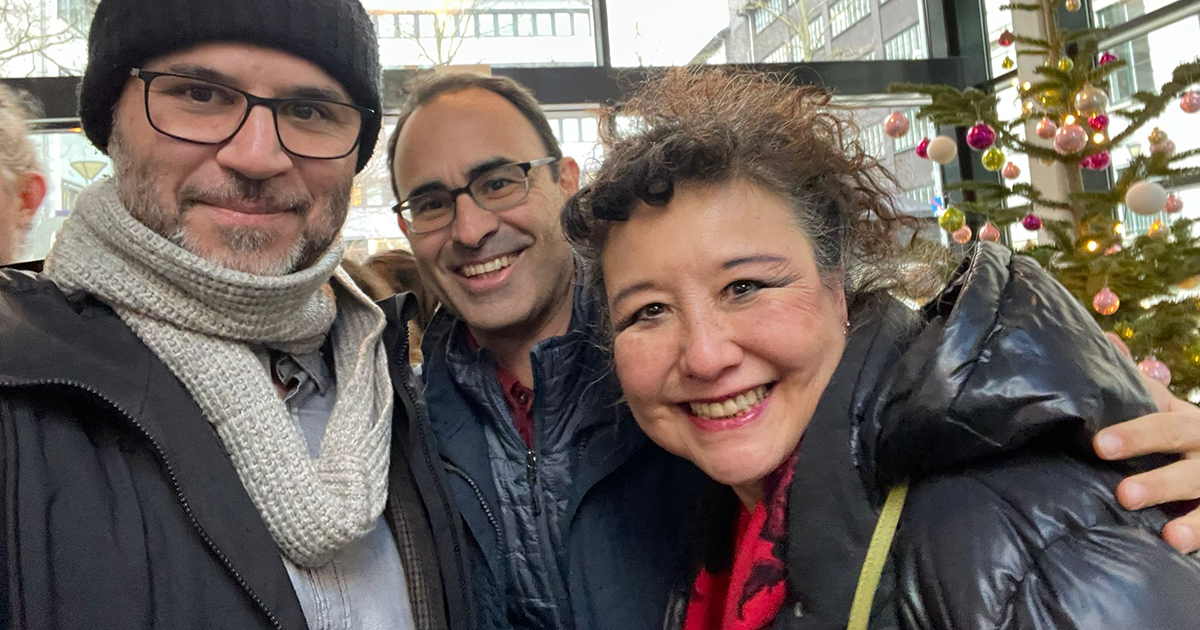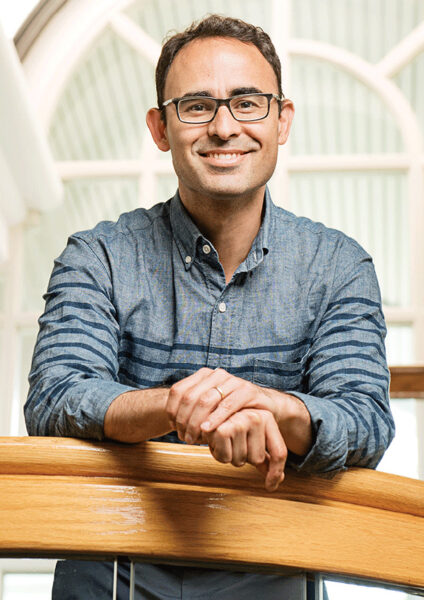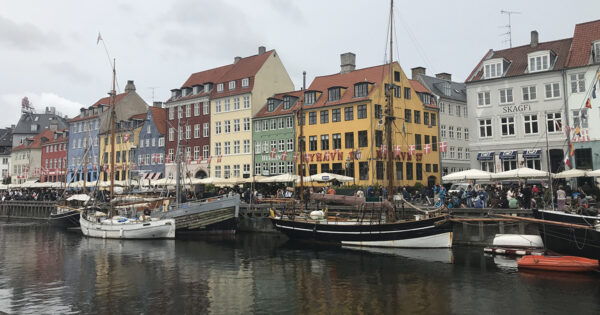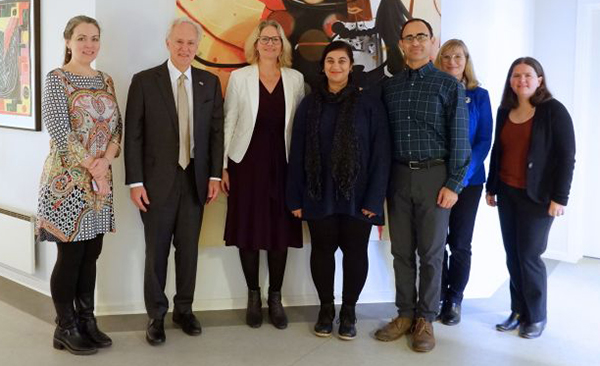What It Means to Be a Fulbright Scholar from Babson College

Researching sustainability, rich cultural exchange, and a family Christmas party.
For Sinan Erzurumlu, his experience as a Fulbright U.S. Scholar has been everything he hoped for and more. The professor of innovation and operations management at Babson College recently returned from a semester abroad in Copenhagen, Denmark.

Erzurumlu’s Fulbright grant this year is just the latest for Babson College, which was named a Fulbright Top Producing Institution for the second year in a row by the U.S. Department of State’s Bureau of Educational and Cultural Affairs. The recognition is given to the U.S. colleges and universities that received the highest number of applicants selected for the 2023–2024 Fulbright U.S. Student Program.
The Fulbright Program at Babson is administered through the Glavin Office of International Education. Babson received the recognition last year, when JerDrema (Dreme) Flynt M.Ed., MBA’22 was awarded a Fulbright grant, the first Babson graduate student to earn the prestigious prize. Flynt earned a U.S. Student Fulbright English Teaching Assistantship in South Africa.
Fulbright Scholar Awards are prestigious and competitive fellowships that provide unique opportunities for scholars to teach and conduct research abroad. Fulbright scholars also play a critical role in U.S. public diplomacy, establishing long-term relationships between people and nations. Alumni include 62 Nobel Laureates, 89 Pulitzer Prize winners, 78 MacArthur Fellows, and thousands of leaders and world-renowned experts in academia and many other fields across the private, public, and nonprofit sectors.
Erzurumlu just returned from Copenhagen and spoke with Babson Thought & Action about the Fulbright Scholarship, his experience in Denmark, and the latest recognition for the College.
What did it mean to you to receive the Fulbright Scholarship?
“For me, the Fulbright Scholarship is important in two regards. First, it is a confirmation of doing leading research in sustainability. The application is evaluated by the Fulbright Commission of 12 members. Second, it is a recognition by two countries that my work can increase the mutual understanding between the people of two countries and serve as a cultural connector for many years beyond the grant period. I also cherish this partnership with my host country to examine the intercultural aspects of sustainable systems and sustainability transformation. I am humbled and honored to be recognized for my work and its potential impact and accepted as a Fulbright Scholar for serving as a cultural ambassador.”

How was your experience in Denmark?
“I moved with my family, which actually enhanced my experience. You get closer to the community when you integrate yourself as a family into Danish life. We arrived in August and stayed close to the end of December. My host institution was Copenhagen Business School (CBS), and I had the opportunity to work with my colleagues, professors Juliana Hsuan and Leonardo Santiago.

“Besides working on my research agenda, I took advantage of everything CBS could offer. CBS has a highly active scholarly environment, and Denmark and the European Union have different sustainability initiatives that we could learn a lot from. I joined conferences on modern capitalism and corporate purpose, sustainability in U.S. higher education (by the Association for the Advancement of Sustainability in Higher Education), sustainable energy, and teaching sustainability, and I attended talks by leading scholars from around Europe. I met scholars at my and other departments to get to know them and learn about their research. I was very lucky to visit the Kalundborg Symbiosis, which has developed an amazing ecosystem of companies that build a lot of sustainability initiatives while developing cutting-edge products.
“Also, my family and I enjoyed participating in Danish traditions and visiting cultural and recreational activities around Copenhagen and Denmark. It was nice to get immersed in the Nordic culture. Sometimes, it was just having lunch with my colleagues or attending the traditional and much anticipated Christmas party. Sometimes, it was visiting the Jelling stones, which were the birthmark of Denmark and learning more about the country’s background and identity at talks and museums and simply just living in Copenhagen.”
What are you hoping to take away from your experience? And what impact do you expect it to have on your career?
“Denmark and Nordic societies are ahead of what we could develop as a more sustainable system in the U.S. To experience this mindset personally was for me the major takeaway. Now it makes me reflect a lot on how we might design and adopt sustainable innovations that could help us transition to a more sustainable future. My research underlines this question, but there is nothing like living and experiencing how it could be done.
“After my experience, I am more invested in moving in the direction of building a sustainable future, from business model innovations to technological developments and to cultural and economic transformation, with people from around the world. I believe I have made connections and built friendships that I hope to work together with for years to come.”
“It proves that Babson’s impact is rising, and we have creative and entrepreneurial minds on campus. The Babson community is producing great work and building cultural connections.”
Sinan Erzurumlu, professor of innovation and operations management at Babson College
Babson has been named a Fulbright Top Producing Institution for two years in a row. As a faculty member, what does that recognition mean to the College and your colleagues?
“That is great news. It proves that Babson’s impact is rising, and we have creative and entrepreneurial minds on campus. The Babson community is producing great work and building cultural connections. I strongly believe that to deal with complex issues on hand, we need to learn how to come together and listen to understand each other’s perspectives. That is what an entrepreneur does, assembling the right resources for the right outcomes and impact, and acting with a learning mindset. Fulbright serves that mission, and it is amazing to hear that Babson has a strong and active community of entrepreneurial leaders.”
Posted in Outcomes




